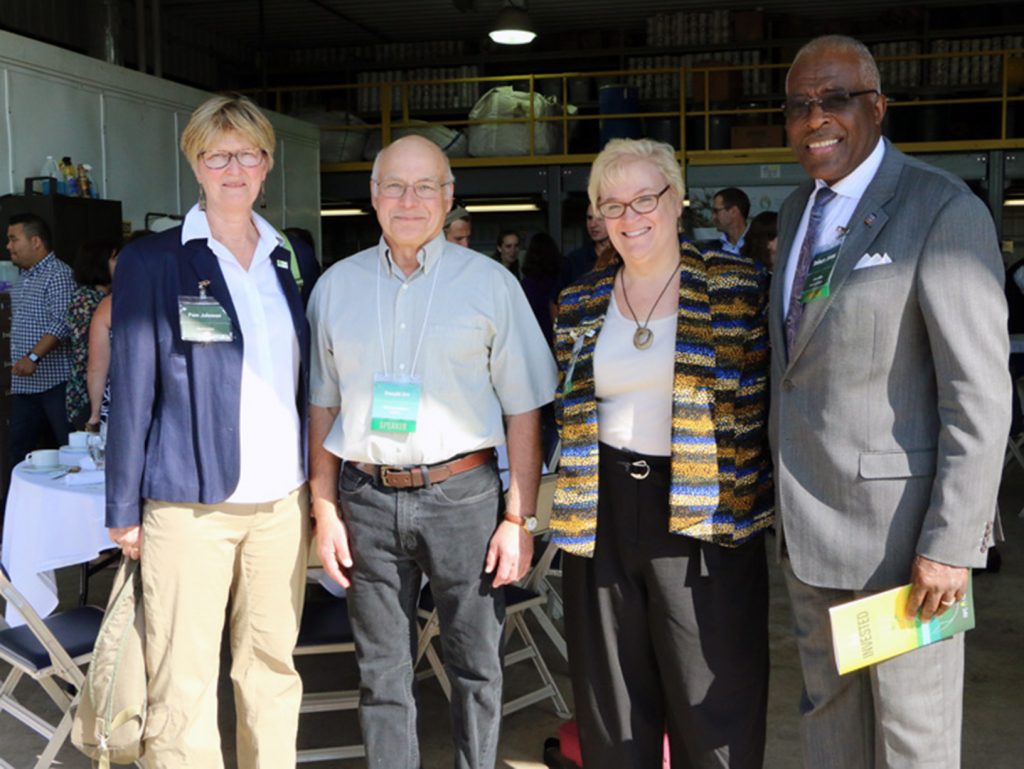Greetings from Champaign, Illinois!
By now you’ve heard about the groundbreaking RIPE project and its quest to improve photosynthetic efficiency in plants. I had the pleasure of joining co-funders from the Bill & Melinda Gates Foundation and U.K. Department of International Development along with agricultural leaders and USDA representatives to see firsthand where the innovation happens during the RIPE Reinvestment event at the University of Illinois.
 From left to right: FFAR Board Member Pam Johnson, RIPE Deputy Director Don Ort, FFAR Executive Director Sally Rockey and University of Illinois Chancellor Robert Jones.
From left to right: FFAR Board Member Pam Johnson, RIPE Deputy Director Don Ort, FFAR Executive Director Sally Rockey and University of Illinois Chancellor Robert Jones.
RIPE, or Realizing Increased Photosynthetic Efficiency, researchers have already redesigned photosynthesis to increase test crop yields by 20 percent. Now, with an additional $45 million investment, the team of University and USDA scientists is working to provide those same yield increases to soybeans, cassava and cowpeas.
Imagine what this could mean in the fight against world hunger. Farmers across the world could produce more food simply by harnessing the power of the sun. There is endless potential in this project to improve human health and increase economic opportunities for farmers.
 Johannes Kromdijk, Postdoctoral Researcher for RIPE, explained the rigorous process of studying the photosynthetic process of plants in his lab in the Carl. R. Woese Institute for Genomic Biology at the University of Illinois.
Johannes Kromdijk, Postdoctoral Researcher for RIPE, explained the rigorous process of studying the photosynthetic process of plants in his lab in the Carl. R. Woese Institute for Genomic Biology at the University of Illinois.
The RIPE team brings together experts from around the world to look at photosynthesis – the process that makes a plant a plant! It’s basic for plant survival, yet it can be very inefficient. By studying plant genetics, RIPE will lead the way in creating crops that will feed the world.
Tackling big problems with big science is what FFAR is all about. It was amazing to see how many labs and researchers are involved in this project, not only at University of Illinois but also at partner institutions across the U.S. and overseas – it really is a team effort! I’m excited to see what discoveries they make and how it will change the world.